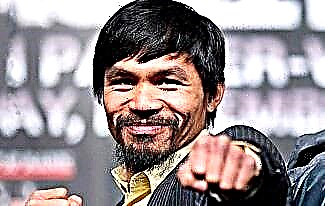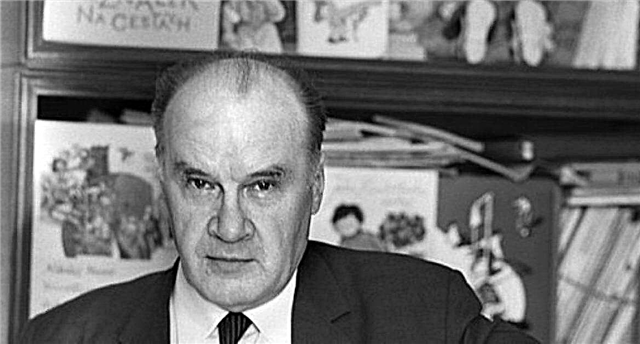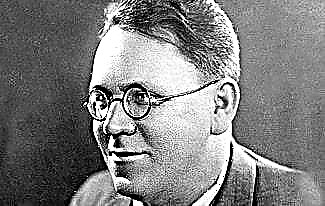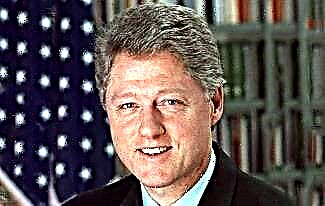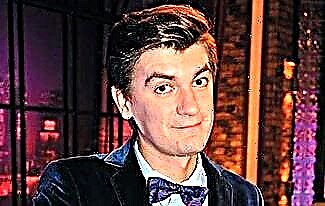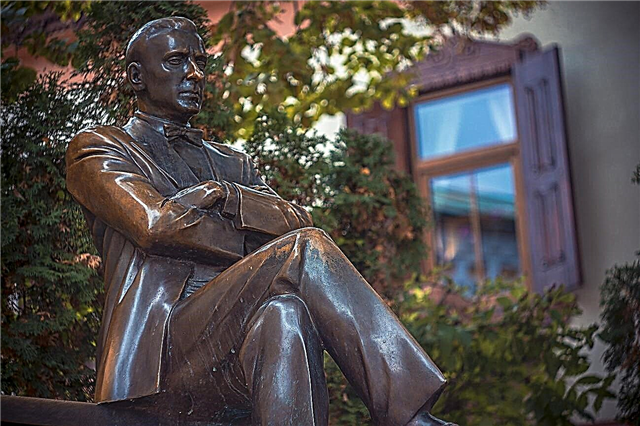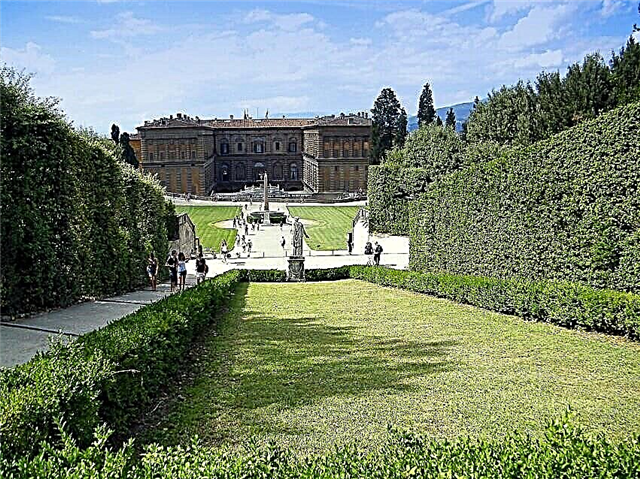Vasily Alexandrovich Sukhomlinsky (1918-1970) - Soviet innovative teacher and children's writer. The founder of the pedagogical system based on the recognition of the child's personality as the highest value, on which the processes of upbringing and education should be oriented.

There are many interesting facts in the biography of Sukhomlinsky, which we will talk about in this article.
So, before you is a short biography of Vasily Sukhomlinsky.
Biography of Sukhomlinsky
Vasily Sukhomlinsky was born on September 28, 1918 in the village of Vasilyevka (now the Kirovograd region). He grew up in the family of a poor peasant Alexander Emelyanovich and his wife Oksana Avdeevna.
Childhood and youth
Sukhomlinsky Sr. was considered one of the most prominent people in the village. He actively participated in public life, appeared in newspapers as a selkor, led a collective farm hut-laboratory, and also taught work (carpentry) to schoolchildren.
The mother of the future teacher ran a household, and also worked on a collective farm and moonlighted as a seamstress. In addition to Vasily, a girl Melania and two boys, Ivan and Sergey, were born in the Sukhomlinsky family. An interesting fact is that they all became teachers.
When Vasily was 15 years old, he went to Kremenchuk to get an education. After graduating from the workers' school, he successfully passed the exams at the pedagogical institute.

At the age of 17, Sukhomlinsky began teaching at a correspondence school located near his native Vasilievka. During that period of his biography, he decided to transfer to the Poltava Pedagogical Institute, from which he graduated in 1938.
Having become a certified teacher, Vasily returned home. There he began to teach Ukrainian language and literature at the Onufriev secondary school. Everything went well until the beginning of the Great Patriotic War (1941-1945), at the beginning of which he went to the front.
A few months later, Sukhomlinsky was seriously wounded by shrapnel during one of the battles near Moscow. Nevertheless, the doctors managed to save the soldier's life. An interesting fact is that a shell fragment remained in his chest until the end of his days.
After being discharged from the hospital, Vasily again wanted to go to the front, but the commission found him unfit for service. As soon as the Red Army managed to liberate Ukraine from the Nazis, he immediately went home, where his wife and little son were waiting for him.
Upon arrival in his native land, Sukhomlinsky learned that his wife and child had been tortured by the Gestapo. Three years after the end of the war, he became the principal of a high school. Interestingly, he worked in this position until his death.
Pedagogical activity
Vasily Sukhomlinsky is the author of a unique pedagogical system based on the principles of humanism. In his opinion, teachers should see in each child a separate personality, towards which upbringing, education and creative activity should be oriented.
Paying tribute to the labor education at school, Sukhomlinsky opposed early specialization (from the age of 15), provided for by law. He argued that all-round personal development is possible only where the school and the family act as a team.

With the teachers of the Pavlysh school, whose director was Vasily Alexandrovich, he presented an original system of working with parents. Almost for the first time in the state, a school for parents began to operate here, where lectures and conversations with teachers and psychologists were held, aimed at the practice of education.
Sukhomlinsky believed that childish selfishness, cruelty, hypocrisy and rudeness are the derivatives of poor family education. He believed that in front of every child, even the most difficult one, the teacher is obliged to reveal those areas where he can reach the highest peaks.
Vasily Sukhomlinsky built the learning process as a joyful work, paying attention to the formation of the students' worldview. At the same time, much depended on the teacher - on the style of presentation of the material and interest in students.
The man has developed an aesthetic program of "education by beauty", using the world's humanistic ideas. In full, his views are set out in "Studies on Communist Education" (1967) and other works.
Sukhomlinsky urged to educate children so that they are responsible to relatives and society and, most importantly, to their conscience. In his famous work "100 Tips for Teachers," he writes that the child explores not only the world around him, but also knows himself.
From childhood, a child should be instilled with a love of work. In order for him to develop a desire for learning, parents and teachers need to cherish and develop in him the sense of pride of the worker. That is, the child is obliged to understand and experience his own success in learning.
Relationships between people are best revealed through work - when each does something for the other. And although a lot depends on the teacher, he needs to share his concerns with his parents. Thus, only through joint efforts will they be able to raise a good person from a child.
On labor and the causes of juvenile delinquency
According to Vasily Sukhomlinsky, those who fall asleep early, sleep enough time, and wake up early feel the best. Also, good health appears when a person devotes mental work 5-10 hours after waking up from sleep.
In the following hours, the individual should reduce labor activity. It is important to note that an intense intellectual load, especially memorizing the material, is categorically unacceptable in the last 5-7 hours before bedtime.

Based on statistics, Sukhomlinsky argued that in the case when the child was engaged in lessons for several hours before going to bed, he became unsuccessful.
With regard to juvenile delinquency, Vasily Alexandrovich also presented many interesting ideas. According to him, the more inhuman the crime, the poorer the mental, ethical interests and needs of the family.
Such conclusions Sukhomlinsky drew on the basis of the research. The teacher said that not a single family of teenagers who broke the law had a family library: "... In all 460 families I counted 786 books ... None of the juvenile delinquents could name a single piece of symphonic, operatic or chamber music."
Death
Vasily Sukhomlinsky died on September 2, 1970 at the age of 51. During his life, he wrote 48 monographs, over 600 articles, as well as about 1,500 stories and fairy tales.
Sukhomlinsky Photos







